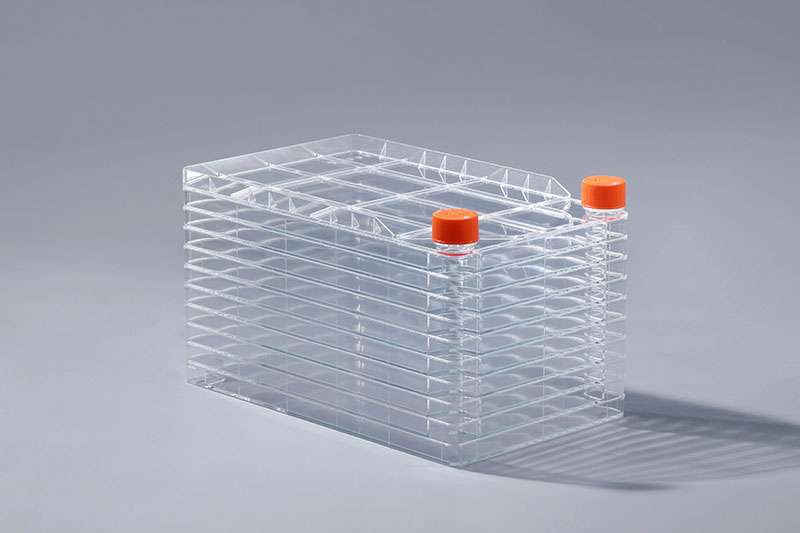Application of Cell Factory in Rotavirus Culture
Cell factory culture technology is one of the effective methods for large-scale cell culture and virus amplification. It has the advantages of low risk of contamination, convenient amplification, and space saving. Oral rotavirus culture is one aspect of its application.
Rotavirus is one of the main pathogens that cause diarrhea in infants and young children. It mainly infects small intestinal epithelial cells, causing cell damage and diarrhea. The infection route is the fecal-oral route, and the clinical manifestations are acute gastroenteritis, osmotic diarrhea, and dehydration symptoms in severe cases. Vaccination against rotavirus in infants and young children is the main measure to prevent the disease.
Compared with the traditional roller bottle culture, the cell factory culture technology is an efficient cell culture container. Its surface is specially treated to have uniform and continuous cell adsorption, which can effectively promote the adherent growth of cells and shorten the culture period. Improve product. After inoculation with rotavirus, cells are not affected by liquid shear forces, which facilitates continued viral replication for multiple harvests. Experiments have shown that after inoculation with La strain virus, the virus drop rate in the cell factory grows faster, and the virus titer reaches 6.0-6.5lgCCID/ml in 3 days. The harvested cells do not fall off, but are still evenly arranged. The maintenance medium continued to be cultured, and the cells did not fall off until the third harvest of the virus medium.
In general, after the cell factory culture technology is applied to rotavirus culture, it performs well in terms of cell growth rate and harvest times, and is an efficient cell culture container.

评论
发表评论